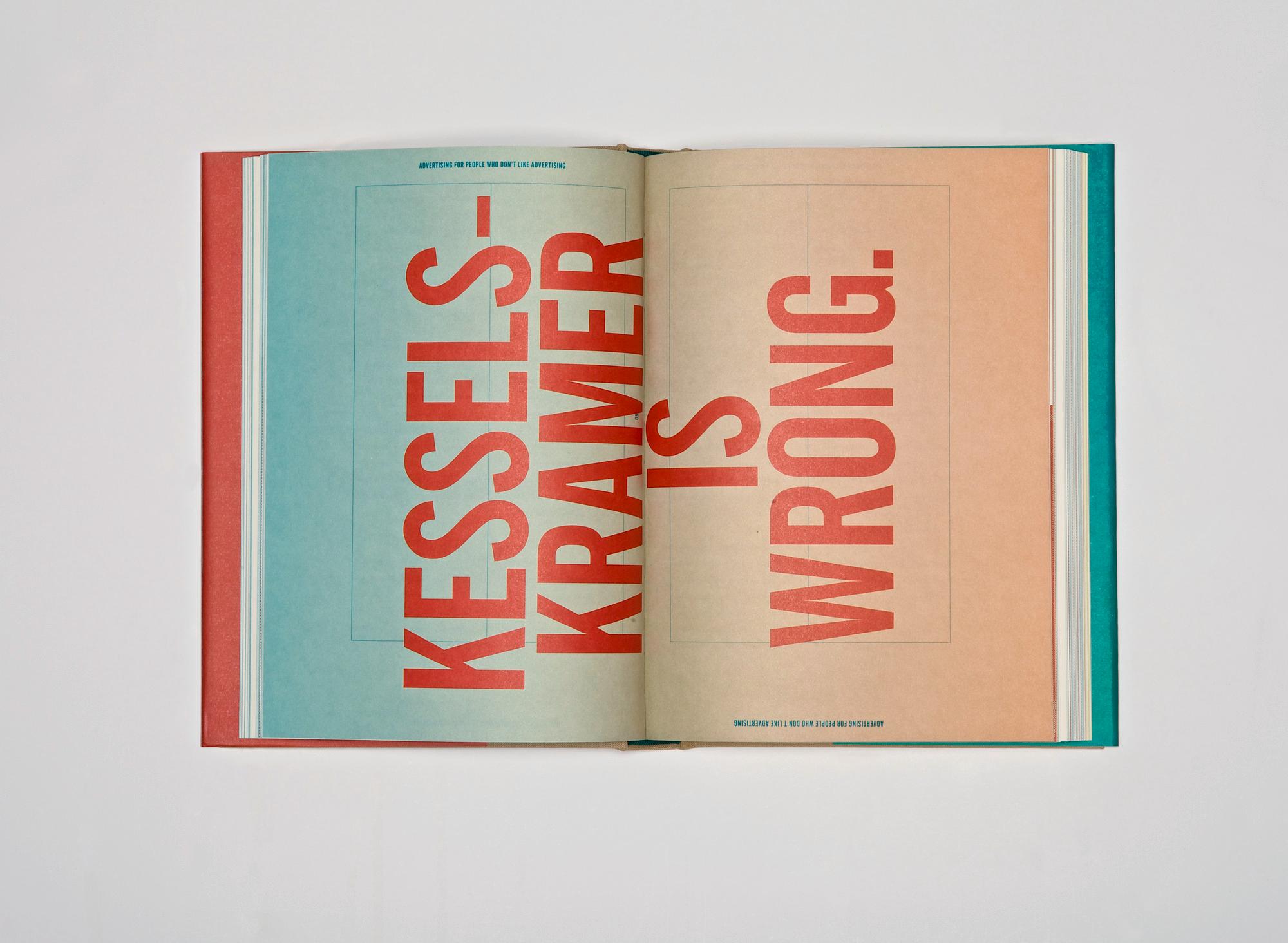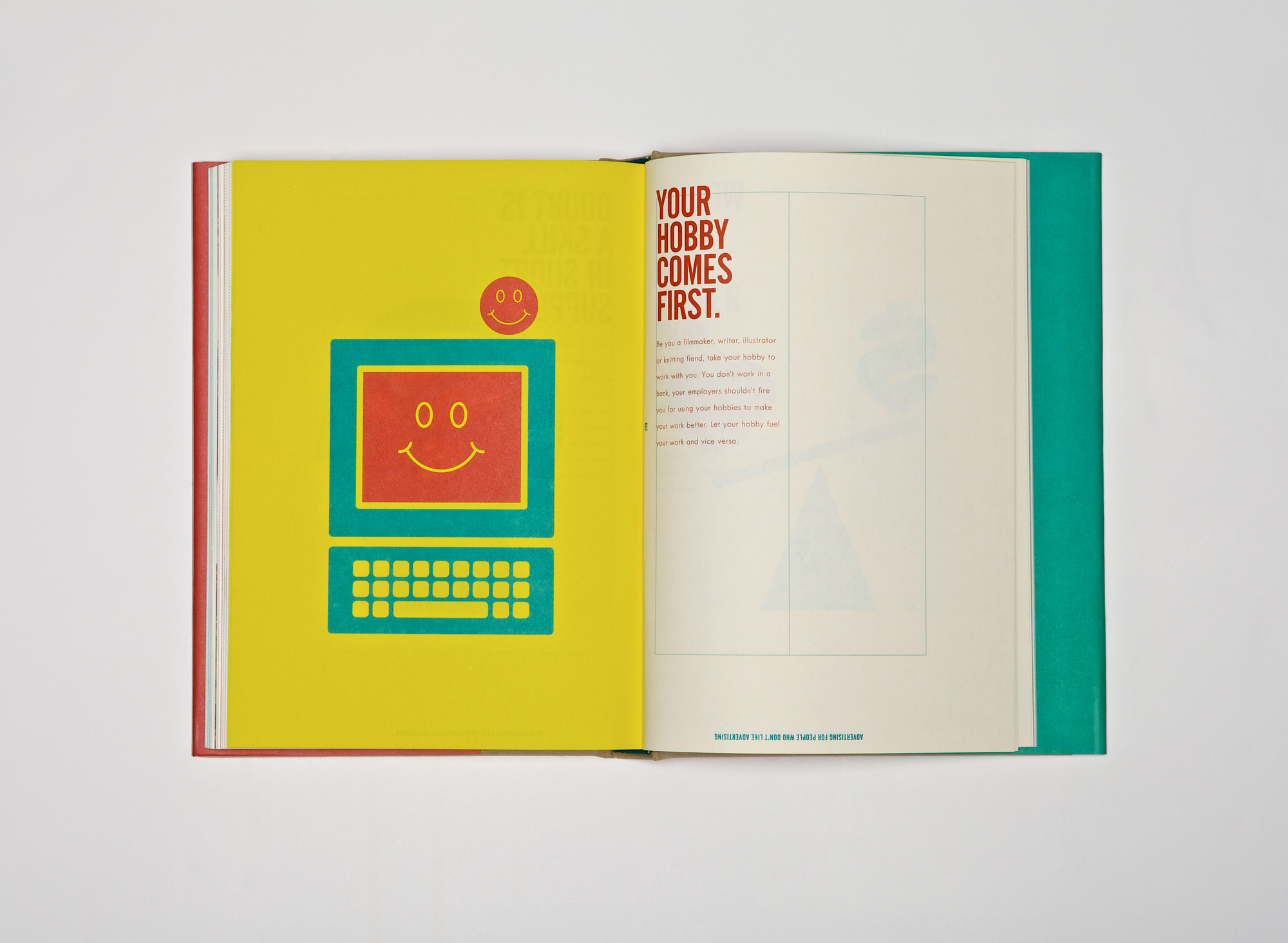


Project. Advertising For People Who Don’t Like Advertising was a business book I initiated, edited and wrote. It was published all over the world, and sold out in hardback.
My Role. Copy, editing and concept.
Extract (from the introduction).
This book is for anyone who's ever been irritated by an ad break or frustrated by a web banner. In other words, most people.
We understand how you feel. We really do.
However, it’s only fair to inform you: we make ads.
Lots of them.
Amongst many, many other projects, we’ve worked with global brands to make fashion collections, turned dogshit into mini billboards and promoted a Dutch province by staging a mass wedding.
KesselsKramer (KK) began in 1996, born from a dislike of adverts in general, as well as the industry conventions that produced them.
One of those conventions was the use of the word “advertising” itself. KK felt that “advertising” stood for a narrow mindset: the assembly-line production of formulaic billboards, TV ads and radio spots.
Instead, KesselsKramer became preoccupied with making communications. For KK “communications” stood for truthful, human messages that told a brand’s story in any and all available media.
Though now common, this approach was then novel: using music videos, books, exhibitions and stunts to support a product was rare.
This love of diversity also underscored a restlessness that extended beyond advertising. Outside commercial briefs, KesselsKramer spent (and spends) its time expressing creative ideas wherever the possibility arises. After all, an idea is still an idea, whether it comes attached to a marketing message or not.
Over time, this version of communications came to encompass the publication of books on photography (through KK’s in-house publisher) and an own brand, “do,” whose many products aim to make consumerism less passive.
In part, this book is an invitation to all those who would mess with creativity and commerce.
It’s also motivated by a wish to look outward, to make contact with those we admire, those who question our industry. We wanted to discuss what insights they’ve gained over the last decade or so, a period in which the business was redefined, and re-redefined, and re-re-redefined.
Above all, it’s about using frustration as fuel to make things better.